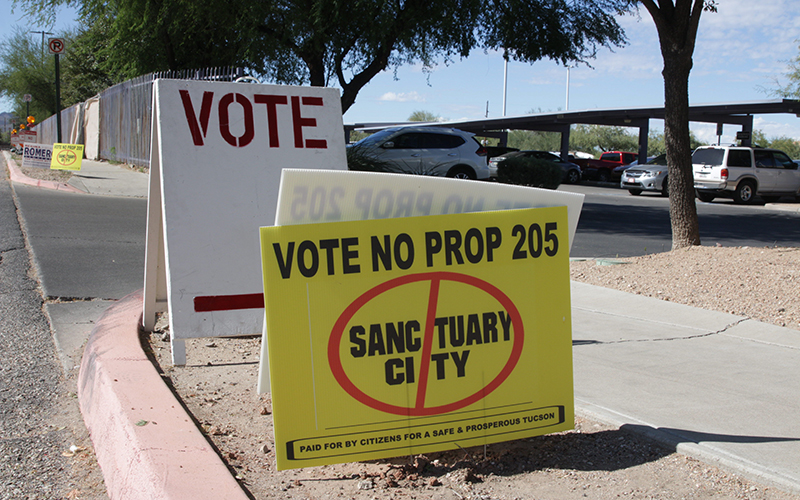TUCSON – Voters on Tuesday overwhelmingly defeated Proposition 205, which would have declared Tucson the state’s first sanctuary city. The vote came amid warnings from the Trump administration of possible federal sanctions costing the city millions of dollars.
More than 70% of voters said no to the proposition in Arizona’s second-largest city, known for its immigration friendly policies. The proposition would have limited police ability to question people about immigration status or allow ethnicity or language to be the basis for questions about immigration status.
Backers said the purpose was to reduce police interaction with federal immigration authorities.
“We are still the home of SB 1070,” said Zaria Livier, director of the People’s Defense Initiative, which pushed to place the proposition on the ballot. “That law makes any member of law enforcement a de facto immigration officer.”
SB 1070, passed in 2010, allowed any member of law enforcement to ask about someone’s immigration status based on “reasonable suspicion.” Detractors said it was widely used to discriminate against Hispanics.
Council member Steve Kozachik, usually in favor of issues that would help immigrants, said he was relieved the proposition didn’t pass because the language was “too broad.”
“This is not a question of whether or not we welcome immigrants,” Kozachik said. “This is a question as to whether or not 205 is simply good policy.”
Kozachik said he is more than willing to consider the measure later if it’s revised.
Tucson voters had mixed feelings about Prop 205 even being on the ballot.
“It’s absurd, there is no need for any of that stuff,” Harry Smid said as voted Tuesday. “We need police – we don’t need sanctuary cities.”
Smid added that he already is frustrated with how the police work, and he carries a gun to protect himself.
But another voter, Jennifer Wylie, said Tucson should become a sanctuary city.
“It’s criminal what they are doing to these people,” she said of immigration authorities.
Immigration attorney Maurice Goldman stressed that immigration is civil in nature.
“If you violate an immigration law in the U.S.,” he said, “it’s a civil violation, not a criminal violation.”





